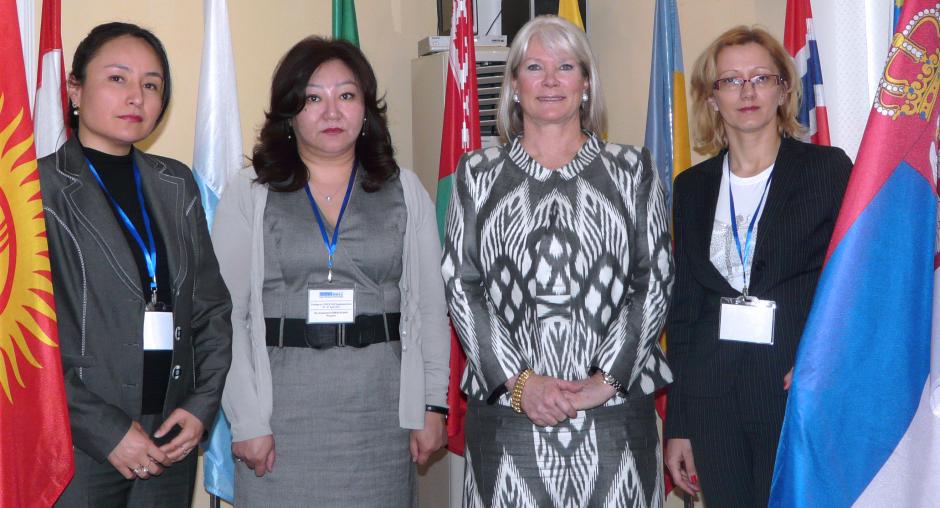OSCE Border Management Staff College trains officials on non-proliferation of weapons of mass destruction

The OSCE Border Management Staff College (BMSC) held a training course on implementing UN Security Council Resolution 1540 on the non-proliferation of weapons of mass destruction from 3 to 6 April 2012 in Dushanbe, Tajikistan. High-ranking law enforcement officers and policy makers from Ministries of Finance, Foreign Affairs, Defence, Interior, Emergency Situations as well as customs services and border guards from 11 countries participated.
The event was organized by the College in co-operation with the OSCE Conflict Prevention Centre and the United Nations Office of Disarmament Affairs (UNODA).
The course provided an overview of the implementation as well as the key elements of the resolution. Participants exchanged ideas and shared their experiences in the implementation process of the UNSCR 1540. Topics ranged from trade export controls to biological and chemical weapons conventions.
Twenty-six senior officials from Austria, Belarus, Georgia, Kyrgyzstan, Former Yugoslav Republic of Macedonia, Mongolia, Poland, the Russian Federation, Serbia, Tajikistan and Thailand participated.
The project brought together 13 experts from Austria, Germany, Mexico, the Russian Federation and the United States of America, representing the 1540 Committee, UNODA, International Atomic Energy Agency, Organization for the Prohibition of Chemical Weapons, World Health Organization, and the Embassy of the Russian Federation to Tajikistan. An expert from the United Nations Office on Drugs and Crime (UNODC) participated by teleconference.
The OSCE and UNODA co-operate and co-ordinate their efforts through joint activities to promote the implementation of UNSCR 1540 and to assist OSCE participating States in the development of their legislative framework and technical capabilities.
